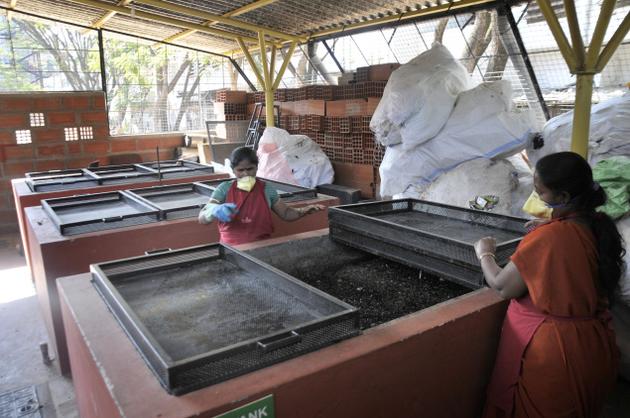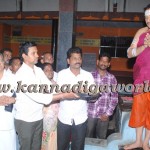
10 tonnes of waste from Rajarajeshwari Nagar sent for recycling each month
Exasperated by the stray dog menace in her neighbourhood, Rajarajeshwari Nagar resident Veena R. decided to put an end to it by tackling the garbage issue. There was a garbage mound at every street corner. So, Veena decided to put in place a formal process of waste segregation. An unused BBMP shed in her ward was converted into a dry waste collection centre.
The centre, which was started over two years ago, now caters to around 2,500 households, 40 apartments, and even a few offices in the area, according to residents. Here, all forms of dry waste – plastics, paper, polythene and glass – are categorised again as part of the secondary segregation.
Community spirit in the locality has ensured that the centre sends out an average of 8 to 10 tonnes of waste per month to private agencies for recycling. From April 2013 to March 2014, the centre generated 300 kg of waste.
Rajappa, a resident of BEML Layout in Rajarajeshwari Nagar, said that the earlier private contractors would mix the segregated waste. “Those who collected dry waste would pick up the high value items like hard plastic and milk covers, leaving behind the rest. Thus, we wanted to ensure that all the waste collected at the centre is recycled,” he said.
While Rajarajeshwari Nagar residents have focussed their efforts towards recycling dry waste, residents of Koramanagala 1st Block have come together recently to ensure that their kitchen waste does not end up in the city’s burgeoning landfills.
“Many residents do not segregate their waste on the pretext that waste collectors end up mixing it up. To ensure that this does not continue, we came up with a workable plan,” said president of the Koramangala Residents’ Welfare Association, Annie Bellara.
Now, each household is given a kit comprising a bag to collect dry waste along with two bins — green for kitchen/wet waste, and pink for biomedical waste such as razor blades and sanitary napkins. As many as 350 households in this block are segregating their waste in this manner. Both dry and wet waste collected from these households, usually twice a week, is sent to the waste management centre called ‘Kasa Rasa’ for recycling.
(The Hindu)


